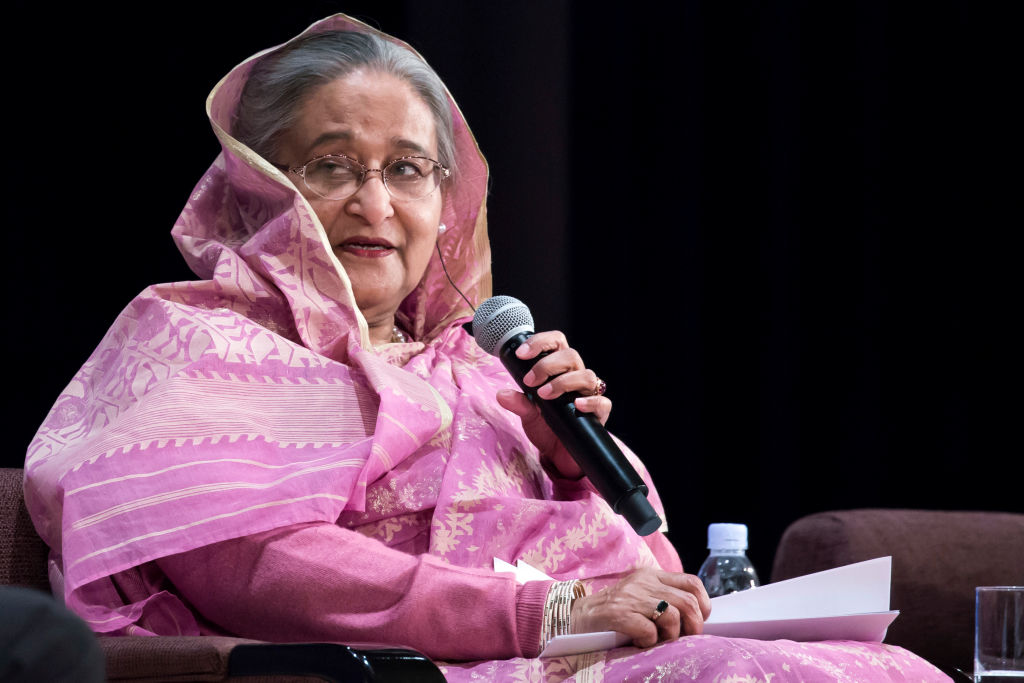On Monday, August 5, Bangladesh witnessed a moment of profound historical significance. Sheikh Hasina, the daughter of Bangabandhu Sheikh Mujibur Rahman, the founding father of Bangladesh and the world’s longest-serving female head of government, resigned from her post and fled the country. Her departure, forced by a tidal wave of mass protests, marked a dramatic turn of events in the nation’s political landscape.
In a swift and secretive operation, the Bangladesh Military flew Sheikh Hasina and her sister, Rehana, out of Dhaka to India, just moments before protesters overran her official residence. India’s External Affairs Minister, S. Jaishankar, confirmed that Hasina had taken shelter in India “for the moment.” This upheaval occurred just ten days before the anniversary of Mujibur Rahman’s assassination on August 15, 1975—a grim reminder of the tragic history that continues to haunt the family.
The suddenness of Hasina’s ouster left many questions unanswered. Could it have been prevented? What sparked the rapid escalation from a protest against the reservation of government jobs for the descendants of freedom fighters to a full-blown anti-government movement? Speculation is rife, with whispers of foreign interference—particularly from Pakistan, China, and the United States.
The U.S. Role: A Long-Standing Tension
The United States has had a complex relationship with Sheikh Hasina’s government, characterized by frequent tension and mutual suspicion. For years, the U.S. appeared to be at odds with Hasina, challenging her government on various fronts. A series of incidents in recent years only exacerbated these tensions.
In May 2023, the U.S. introduced a new visa policy, purportedly aimed at supporting Bangladesh’s goal of holding free, fair, and peaceful parliamentary elections. Under this policy, the U.S. reserved the right to impose visa restrictions on any Bangladeshi individual believed to be complicit in undermining the democratic process. While the opposition Bangladesh Nationalist Party (BNP) welcomed this move, Hasina openly questioned the U.S. motives, expressing her concerns in an interview with Voice of America.
The friction did not stop there. In December 2021, the U.S. imposed sanctions on Bangladesh’s elite paramilitary force, the Rapid Action Battalion (RAB), accusing it of human rights violations. The U.S. also excluded Bangladesh from its Democracy Summit in both 2021 and 2023, further straining relations.
Adding to the tension, the U.S. had been pressuring Bangladesh to sign two defense agreements—the General Security of Military Information Agreement (GSOMIA) and the Acquisition and Cross-Servicing Agreement (ACSA). However, Hasina resisted these efforts, a stance that reportedly irked Washington.
The Final Straw: Saint Martin’s Island
The breaking point in U.S.-Bangladesh relations may have been an alleged attempt by the U.S. to establish a military base on Saint Martin’s Island, Bangladesh’s only offshore island in the Bay of Bengal. In May 2024, Hasina made a startling claim that a foreign power had offered her a hassle-free re-election in the January 2024 parliamentary election in exchange for allowing a military base on the island. Although she did not specify the country involved, many believed she was referring to the United States.
The U.S., eager to bolster its military presence in the Indo-Pacific region amidst rising tensions with China, has been scouting for new bases in the area. The strategic importance of Saint Martin’s Island, with its proximity to key maritime routes, would have made it an attractive location for the U.S. military.
However, Hasina’s refusal to acquiesce to these demands might have sealed her fate. The U.S. has a history of intervening in the politics of the Global South, often under the guise of promoting democracy. Yet, as seen in Iraq, Afghanistan, and now Bangladesh, these interventions have frequently resulted in chaos and instability.
The Aftermath: A Return to Instability?
In the wake of Hasina’s ouster, Bangladesh appears to be teetering on the brink of renewed instability. Islamist groups, particularly the Jamaat-e-Islami—a staunchly anti-India and pro-Pakistan political party—are gaining momentum. The recent protests were reportedly hijacked by the Islami Chhatra Shibir, Jamaat’s student wing, and their affiliates. This resurgence of Islamist forces has sparked concerns about the potential return of terrorism and extremism in Bangladesh, with grave implications for the region.
As India closely monitors the situation, there is a growing fear that Pakistan and China could exploit the turmoil to further their strategic interests in South Asia. The echoes of 1971, when the U.S. attempted to deter India from supporting Bangladesh’s liberation, are unmistakable. Once again, the U.S. finds itself at the center of a geopolitical storm in South Asia, with history seemingly repeating itself.
While the full extent of U.S. involvement in Sheikh Hasina’s ouster remains to be seen, there is little doubt that external forces played a significant role in the dramatic events that unfolded in Bangladesh. The coming months will likely reveal more about the intricate web of alliances and rivalries that led to this epochal moment.
Ramesh Ramachandran (DD India)




















